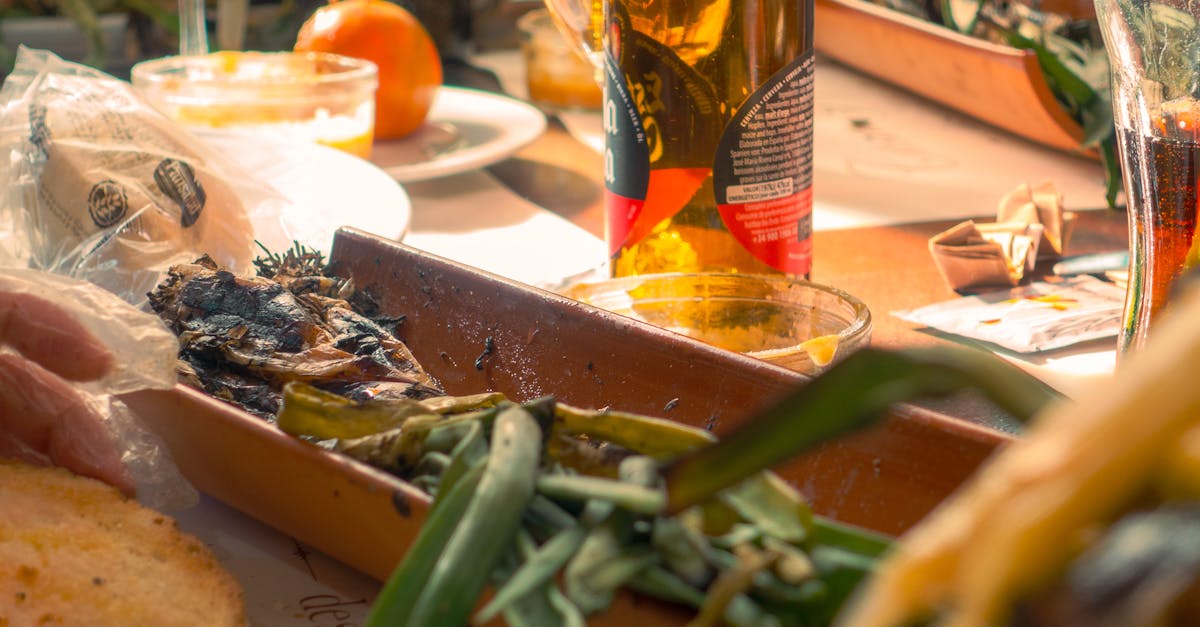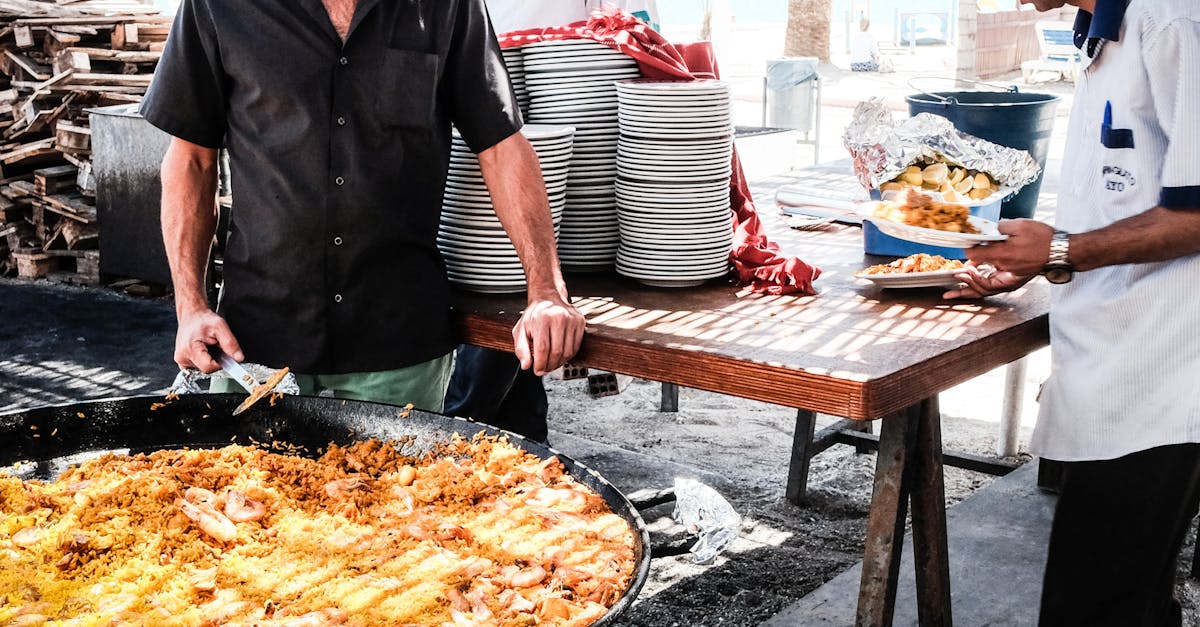Gastronomy in Spain
November 5, 2024

Gastronomy in Spain is a vibrant tapestry woven from the threads of rich culinary traditions, regional diversity, and a passion for good food. Spaniards take immense pride in their gastronomic heritage, which has garnered international acclaim for its irresistible flavors, diverse ingredients, and meticulous preparation methods. From the bustling markets of Barcelona to the quaint villages of Andalusia, the Spanish culinary scene is a melting pot of influences that have been simmering for centuries.
In the first place, Spanish cuisine is characterized by its emphasis on fresh, locally sourced ingredients. Whether it's the succulent seafood of the Mediterranean coast or the hearty stews of the interior, each region of Spain boasts a unique array of dishes that celebrate the bounty of the land and sea. Olive oil, garlic, tomatoes, and a myriad of aromatic herbs and spices are the building blocks of Spanish cuisine, lending depth and complexity to even the simplest of dishes.
Not to mention, Spain's culinary landscape is dotted with Michelin-starred restaurants that push the boundaries of traditional cooking while staying rooted in the country's culinary heritage. Chefs like Ferran Adrià and the Roca brothers have revolutionized the way we perceive Spanish cuisine, fusing innovation with tradition to create unforgettable dining experiences.
Furthermore, tapas, perhaps the most iconic symbol of Spanish gastronomy, embody the spirit of conviviality and sharing that is so integral to the country's food culture. These small plates offer a tantalizing glimpse into the breadth and depth of Spanish flavors, allowing diners to sample a wide variety of dishes in a single sitting. Whether enjoyed with a glass of Rioja or a refreshing glass of sangria, tapas are a culinary tradition that brings people together and celebrates the simple pleasures of good food and good company.
Moreover, in reality, the concept of 'sobremesa' in Spain is a testament to the importance of communal dining experiences in Spanish culture. This cherished tradition refers to the time spent lingering at the table after a meal, engaging in lively conversation, and savoring the essence of good food and company. Spaniards value this post-meal ritual as a time to connect, bond, and enjoy each other's company, reinforcing the idea that food is not just sustenance but a vehicle for creating lasting memories and fostering relationships.
Another key point in Spain's gastronomic culture is the rich tradition of wine production, particularly in regions like La Rioja, Ribera del Duero, and Priorat. Spanish wines, ranging from crisp Albariños to robust Tempranillos, are renowned worldwide for their quality, variety, and unique characteristics. The art of wine-making is deeply intertwined with Spanish history and culture, with vineyards often passed down through generations, each bottle telling a story of the land and the people who cultivated it.
Most compelling evidence of Spain's culinary influence can be seen in the global rise of Spanish tapas bars and restaurants. These establishments, whether in bustling metropolises like New York or quaint towns in Europe, pay homage to the spirit of Spanish gastronomy by offering a diverse selection of tapas dishes that capture the essence of Spain's culinary soul. The popularity of tapas transcends borders, showcasing the universal appeal of Spanish flavors and the vibrant tapestry of tastes that define Spanish cuisine.

The Flavorful Spanish Cuisine Experience
A prime example being the wine region of La Rioja, where vineyards sprawl across the picturesque landscape, producing some of Spain's most renowned wines. The combination of fertile soils, a favorable climate, and centuries-old winemaking techniques has led to the creation of exceptional vintages that reflect the essence of Spanish terroir. Visitors to La Rioja can embark on wine tours, exploring historic bodegas and sampling a diverse range of wines, from elegant reds to crisp whites.
Moving on, the gastronomic scene in Spain is also influenced by its festive traditions, with each region boasting its own culinary specialties that are prepared and enjoyed during unique celebrations. For instance, the famous paella competitions in Valencia bring communities together to showcase their culinary skills and creativity, resulting in a vibrant display of flavors and colors. In a similar vein, the tradition of roasting suckling pig, known as "cochinillo," in Segovia is a culinary spectacle that draws visitors from far and wide to witness the art of slow-roasting this succulent dish.
Additionally, Spanish desserts and sweets are a decadent finale to any meal, with treats like churros con chocolate, flan, and turron captivating the taste buds with their richness and sweetness. These indulgent delicacies reflect Spain's penchant for incorporating bold flavors and textures into its culinary repertoire, providing a delightful contrast to the savory dishes that precede them.
In conclusion, the Spanish culinary experience is a multifaceted journey that celebrates the country's diverse landscapes, rich history, and vibrant culture through the art of food. Whether savoring a simple tapa at a local bar or indulging in a multi-course meal at a Michelin-starred restaurant, dining in Spain is an exploration of flavors, traditions, and the enduring joy of sharing good food with good company.
To summarize, the Spanish gastronomic journey is a delightful exploration of flavors, traditions, and the joy of sharing good food with good company. Spaniards' deep-rooted pride in their culinary heritage, the emphasis on fresh and high-quality ingredients, the evolution of Michelin-starred dining experiences, the conviviality of tapas culture, and the rich tradition of wine production collectively create a vibrant tapestry of tastes that define Spanish cuisine.
Indubitably, Spain's culinary scene is a mosaic of influences and traditions, each dish telling a story of history, culture, and shared experiences. From the sun-kissed vineyards of La Rioja to the bustling markets of Barcelona, the diverse landscapes and regional specialties come together to offer a truly unique and unforgettable experience for food enthusiasts around the world.
Ultimately, dining in Spain transcends the mere act of eating - it is a celebration of life, community, and the simple pleasures that come from sharing a meal with loved ones. The country's culinary bounty, from sumptuous seafood to delectable desserts, reflects a deep-seated appreciation for the finer things in life and showcases the beauty of coming together over a table filled with good food and great company.
In conclusion, the flavorful Spanish cuisine experience is not just about taste; it is about history, culture, and connection. Whether you're savoring traditional tapas or indulging in a world-class dining experience, the soul of Spain's gastronomy lies in the heartwarming moments shared around a table, where every dish served is a celebration of the diverse flavors and rich heritage that make Spanish cuisine truly exceptional.

Title
I'm a paragraph. Click here to add your own text and edit me. It's easy.

Title
I'm a paragraph. Click here to add your own text and edit me. It's easy.

Title
I'm a paragraph. Click here to add your own text and edit me. It's easy.



